Japan’s Liberal Democratic Party (LDP) president Sanae Takaichi created history on Tuesday by being elected the country’s first female prime minister.
Her victory was largely secured by a coalition agreement between the LDP and the right-wing Japan Innovation Party (Ishin), giving her the parliamentary support needed to avoid a runoff.
Ms Takaichi won 237 votes in the 465-seat lower house, securing her position as Japan’s 104th prime minister. She was later approved by the upper house and sworn in on Tuesday afternoon.
Ms Takaichi, 64, a former economic security and internal affairs minister with nearly 30 years in the lower house, is often described as “ultra-conservative” and has previously said that Britain’s divisive figure, the late Margaret Thatcher, is her political hero.
“My goal is to become the Iron Lady,” she said recently.
Ms Takaichi is sceptical of foreign influence and holds hardline stances on immigration, national defence, and traditional family values. Here’s a list of the public statements she has made over the years on several issues:
On work-life balance:
Ms Takaichi, in a speech last month, urged party members to “work like workhorses” and asked them to abandon “work-life balance”.
After winning the party leadership race, she said in her victory speech: “I will work, work, work, work and work.” She also called on LDP lawmakers to “work like a horse”.
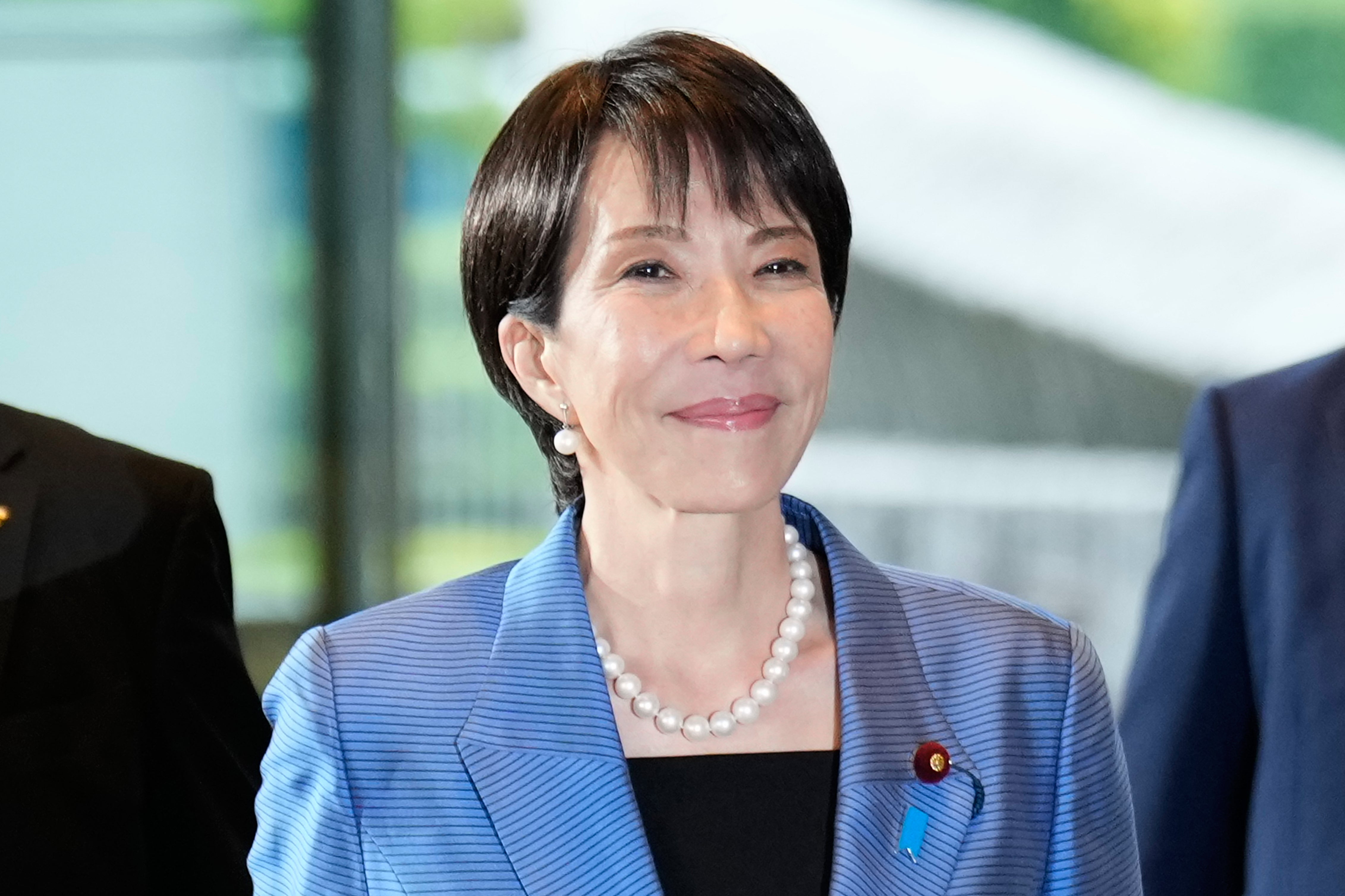
Former prime minister Shigeru Ishiba said at the time: “As she clearly said she would throw away her work-life balance, I can’t help but wonder if that’s okay. But I believe that is her expression of determination.”
A Japanese lawyers’ group addressing overwork-related deaths in Japan, referred to as karoshi, criticised her take on the work-life balance. The National Defence Council for Victims of Karoshi said her stance could pressure workers, including government employees, to overwork and revive outdated work cultures. Families of victims of overwork-related suicides also condemned her remarks, calling for reflection and apology.
On tourists:
During her campaign speech, Ms Takaichi criticised the behaviour of some foreign visitors toward Nara’s deer, saying: “There are outrageous people who kick them with their feet.”
She added: “If visitors come from abroad and intentionally harm what Japanese people cherish, then something has gone too far.”
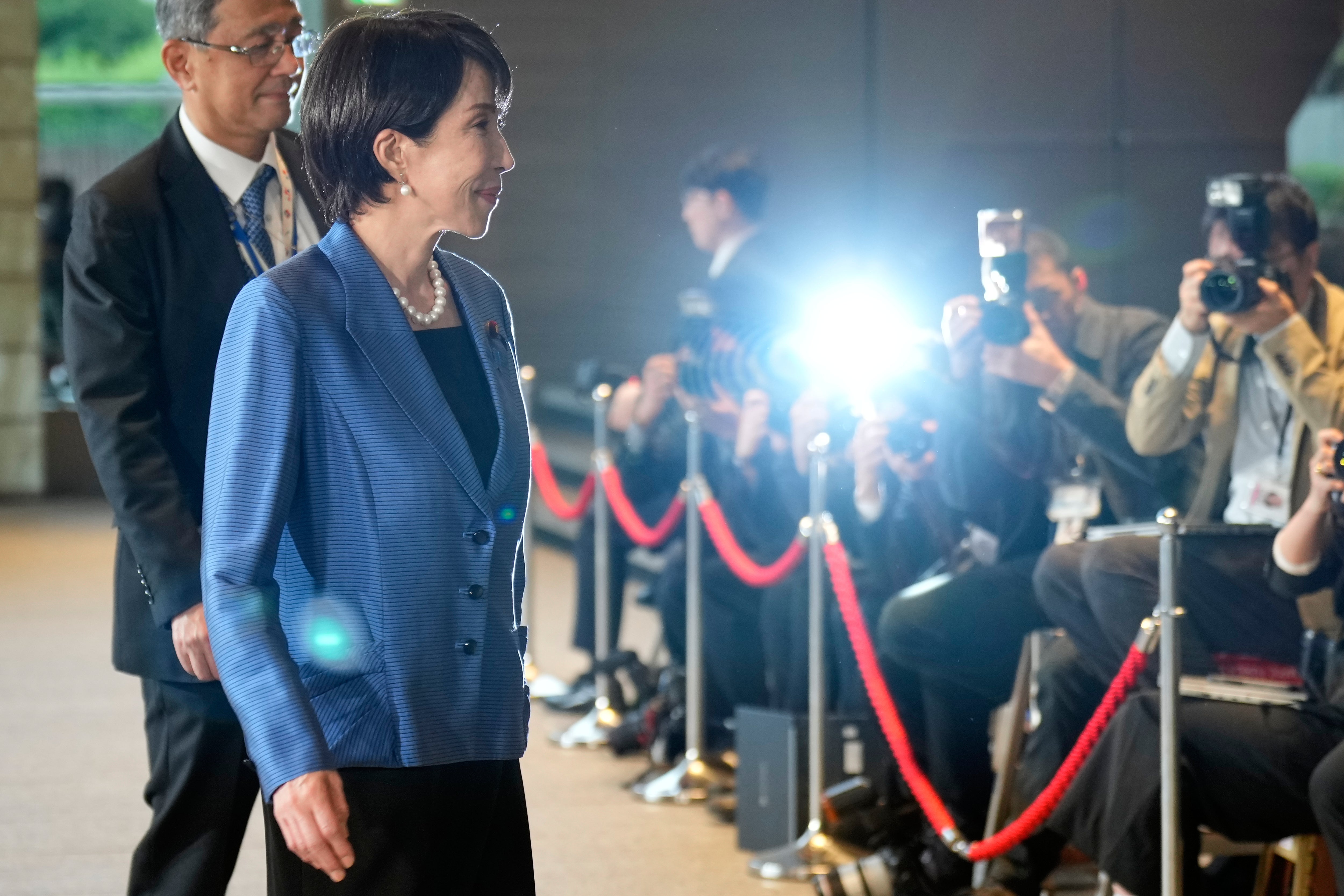
She also referenced tourists hanging from torii gates – traditional Japanese gates most commonly found at the entrance of a Shinto shrine – saying: “If foreigners take pleasure in trampling on the feelings of the Japanese, then something must be done.”
Emphasising her personal connection, she said: “As a woman of Nara, I cannot help but care about the more than 1,460 deer living in Nara Park.”
However, she didn’t provide evidence of instances of inappropriate tourist behaviour. Ms Takaichi first raised concerns about deer being kicked while discussing her policy to address crimes and misconduct by foreign visitors in Japan. Nara Park is a deer park where wild deer, considered sacred to the Japanese, roam freely. They are protected as a national treasure.
On immigration:
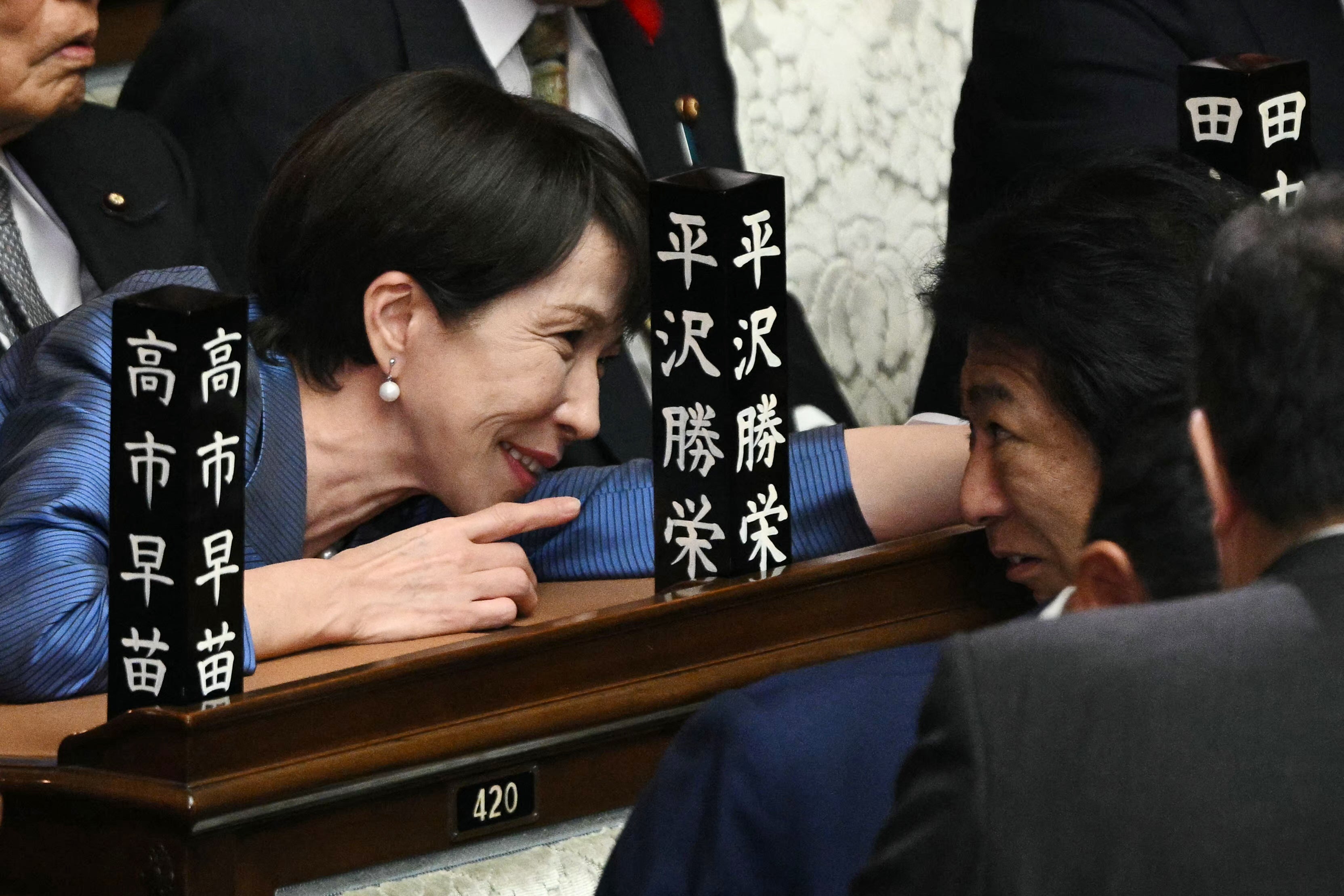
Ms Takaichi has previously said that increasing numbers of foreigners in Japan were “rattling nerves”.
She acknowledged that while tourists were welcome and Japan’s ageing population required foreign workers, “immigration in a hurry would create a hostile atmosphere within Japanese society”.
“I’m going to review the policy so that we will be able to live peacefully together with foreigners,” she said earlier.
On women’s role:
Ms Takaichi has consistently opposed allowing married women to retain their maiden names, arguing that it undermines traditional values.
However, she pledged to form a cabinet with “Nordic-level” gender parity – a dramatic change from the outgoing premier, whose cabinet included just two women.
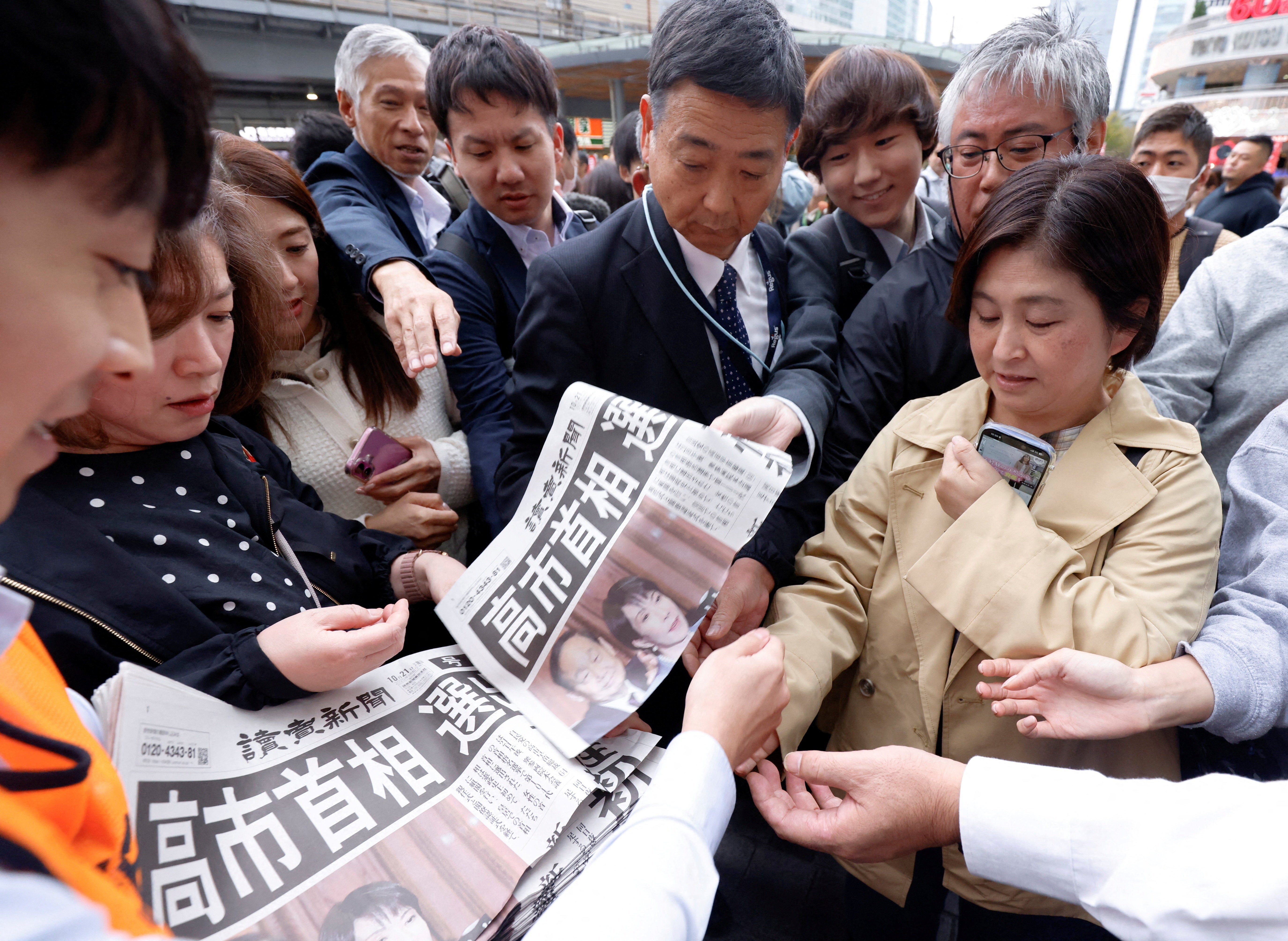
Surveys, however, indicate that her socially conservative stance resonates more strongly with men than with women.
“Our cabinet and (LDP) executive committee will include women to the extent that they will be comparable to those of Nordic countries,” the 64-year-old said.
“I wouldn’t appoint women just because they’re women,” she has previously said. “But the plan is to pick far more women who are capable and willing to serve the nation.”
Women remain underrepresented in Japan’s politics and corporate leadership, with the country ranking 118th out of 148 nations in the World Economic Forum’s 2025 Gender Gap Report – far behind Nordic countries like Iceland, Finland, and Norway, which took the top three spots.
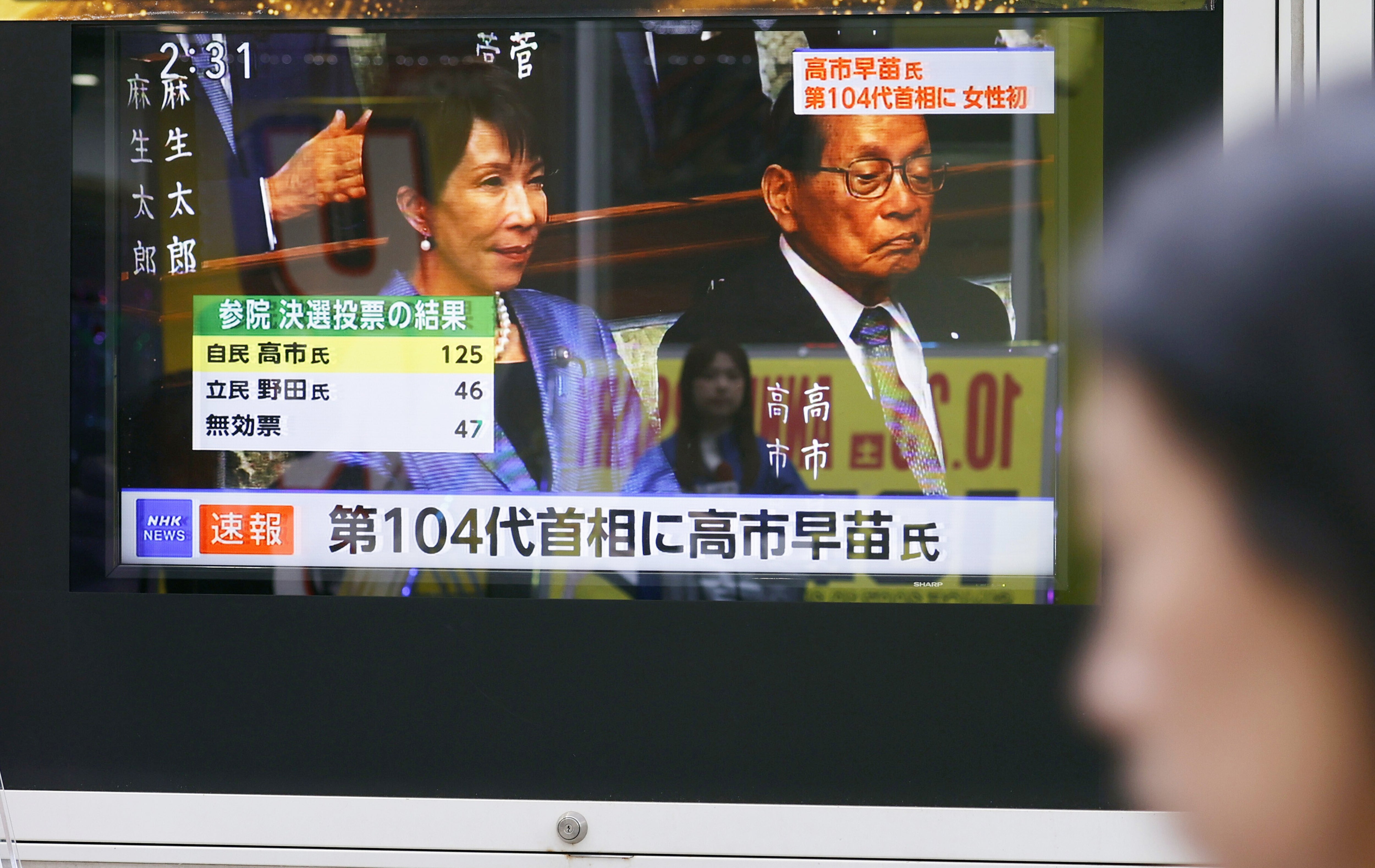
Ms Takaichi remains firmly opposed to same-sex marriage and to changing the 19th-century law that forces married couples to share a surname; she also supports male-only imperial succession.
Although Ms Takaichi has proposed initiatives like creating women’s health centres across the country, polls suggest her broader conservative positions have alienated some female voters. “It’s almost like she’s popular despite her gender, rather than because of it,” political expert Tina Burrett, from Sophia University, told the Australian Broadcasting Corporation.
On Japan’s wartime history:
In 2013, Sanae Takaichi, the then head of the LDP’s policy-research council, urged Shinzo Abe to reconsider past wartime apologies and expand Japan’s regional presence.
According to a Wall Street Journal report, she said that Abe should issue a statement that backtracks on some previous apologies for wartime actions and “protects the honour and pride” of the nation.
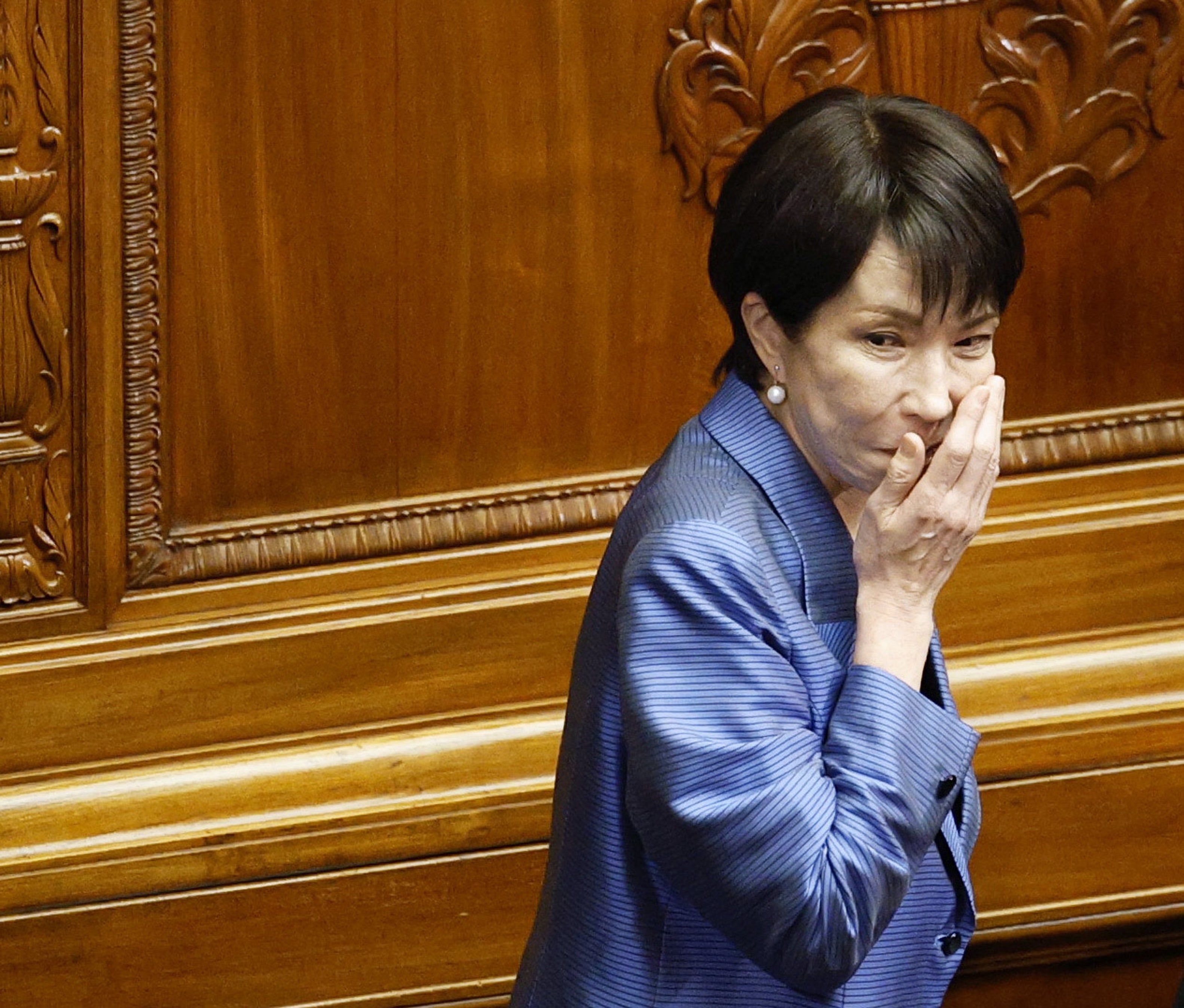
“I look forward, more than anything, to the creation of a new ‘Abe statement’ that would replace the Murayama statement,” Ms Takaichi said in an interview then – referring to the 1995 apology by then-PM Tomiichi Murayama.
She said that Japan shouldn’t have to apologise for matters already covered by international treaties and urged then PM Abe to issue a new statement “as soon as possible”.
On her visit to controversial wartime shrine:
Ms Takaichi has previously called for Japan’s leaders to make annual visits to the Yasukuni shrine, which honours the country’s war dead, including Second World War leaders convicted as war criminals – visits that have previously sparked strong protests from China and South Korea.
“I would be glad if all cabinet members would visit the shrine,” she has previously said.
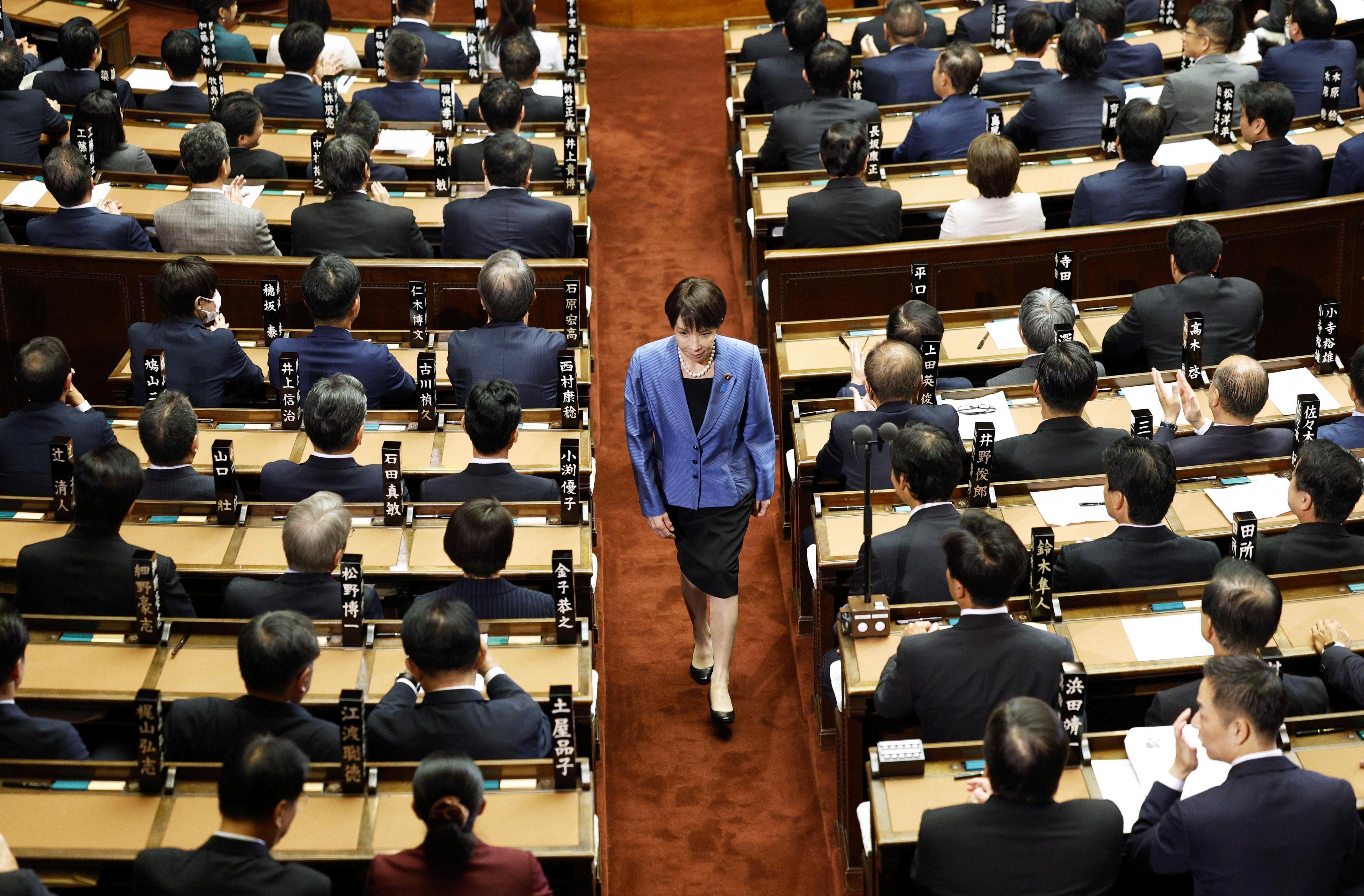
This year, however, she refrained from visiting the Yasakuni Shrine.
On the economy:
Japan is grappling with rising inflation and stagnant wages – key issues that the new prime minister has pledged to tackle.
Consumer prices have climbed to between 2.5 per cent and 3 per cent, exceeding the Bank of Japan’s 2 per cent target, while wages have only just surpassed 1997 levels for the first time in 2024.
The country’s long period of low interest rates has also weakened the yen, worsening inflation by making imports more expensive.
▼Ms. TAKAICHI Sanae has been designated as the 104th Prime Minister. pic.twitter.com/1j5wXPHZuo
— PM's Office of Japan (@JPN_PMO) October 21, 2025
“I want to focus first on dealing with rising consumer prices,” Ms Takaichi told reporters after winning the party leadership. To help revive the Japanese economy, she proposed “responsible, aggressive and wise spending”.
On media:
In 2016, the then-interior minister Takaichi warned that the government has the authority to suspend broadcasters it deems biased in their reporting.
“I don’t think I would resort to such measures myself. But there is no guarantee that future internal affairs ministers won’t.” Ms Takaichi said.
On previous neo-Nazi ‘association’:
In 2014, Ms Takaichi was photographed with Kazunari Yamada, the leader of Japan’s neo-Nazi National Socialist Japanese Workers’ Party, in an image later posted on the group’s website.
Congratulations to @takaichi_sanae on making history today as Japan’s first female prime minister. Under the strong and decisive leadership of @POTUS and Prime Minister @takaichi_sanae, the 🇺🇸🇯🇵 partnership will reach new heights of cooperation in everything from security and… pic.twitter.com/99w5wPN2G2
— ジョージ・グラス駐日米国大使 (@USAmbJapan) October 21, 2025
The photo showed a smiling Takaichi and Yamada… standing in front of a Japanese flag.
Mr Yamada has praised Adolf Hitler and the September 11 attacks, denied the Holocaust, and claimed that postwar Germany is “no different from North Korea”.
Ms Takaichi’s office confirmed that she met Mr Yamada “for talks” in 2011 and that the photographs were genuine, but insisted they were unaware of his extremist background.
“[He] was an assistant to an interviewer and was taking notes and photos,” a member of Ms Takaichi’s staff told AFP at the time. “We had no idea who he was back then but he requested a snap shot with her. [She] wouldn’t have refused such requests.”
“It was careless of us,” the staff member said, adding that Ms Takaichi did not share Mr Yamada’s views “at all … it is a nuisance”.







